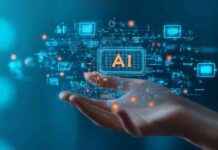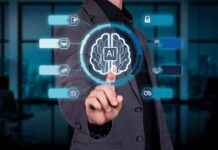Summary: The University of Wyoming is pioneering the use of AI-human collaboration to revolutionize the development of Individualized Education Programs (IEPs) for students with disabilities. Through their innovative CoIEP initiative, powered by large language models (LLMs), the university aims to streamline the complex process of crafting technology-driven IEPs to meet the unique needs of students in Wyoming and beyond.
—
In a groundbreaking effort to enhance the development of Individualized Education Programs (IEPs) for students with disabilities, the University of Wyoming has embarked on a pioneering initiative that marries artificial intelligence with human expertise. Spearheaded by Dr. Ling Zhang, an Assistant Professor in Special Education at the University, the CoIEP project leverages cutting-edge technology to address the challenges faced by educators in tailoring educational experiences for students with disabilities.
Transforming IEP Development Through AI-Human Collaboration
At the core of this transformative project lies the goal of revolutionizing the creation and evaluation of IEPs through a synergy of artificial intelligence and human insight. Mandated by the federal Individuals with Disabilities Education Act (IDEA), IEPs serve as legally binding documents that delineate crucial elements like annual educational goals and specially designed instruction to ensure that students with disabilities receive equitable access to quality education. Recognized as the cornerstone of special education, IEPs play a vital role in customizing learning experiences to cater to the diverse needs of students with disabilities.
The CoIEP initiative, developed by the UW College of Education, introduces a mid-fidelity prototype that aims to streamline the intricate process of IEP development. By deconstructing the step-by-step creation of key IEP components, such as the Present Level of Academic Achievement and Functional Performance statement, IEP goals, and individualized services and supports, CoIEP offers a novel approach to facilitating educators in crafting comprehensive and personalized IEPs for their students. Preliminary assessments indicate that CoIEP has the potential to empower educators in generating high-quality IEP components and delivering tailored instruction to students with disabilities.
Empowering Educators Through Innovative Technology
Developing an IEP is a multifaceted endeavor that demands considerable time and expertise to analyze student data, identify strengths and needs, formulate goals, and design evidence-based instructional practices. This process often proves daunting for special education teachers, especially those who are new to the field or are burdened with large caseloads. Moreover, compliance issues related to IEP requirements pose significant challenges for school districts across the United States, including those in Wyoming, impacting the quality of education provided to students with disabilities.
To address these pressing concerns, CoIEP harnesses the power of a team of LLM-powered agents that collaborate to create the essential components of an IEP in a systematic manner. By leveraging a multi-agent system, CoIEP ensures efficient completion of subtasks within the IEP development process, enhancing the overall quality and accuracy of the generated content. This collaborative approach not only optimizes the workflow but also minimizes the risk of errors or deviations from the intended tasks, offering a reliable solution for educators striving to meet the diverse needs of their students.
—
The saga of AI-human collaboration in transforming IEP development at the University of Wyoming unfolds as a testament to the power of innovation and synergy in shaping the future of special education. With CoIEP poised to revolutionize the educational landscape for students with disabilities, the journey towards inclusive and equitable education takes a quantum leap forward, guided by the vision and dedication of Dr. Ling Zhang and her research team. As the realms of technology and education converge to create a more accessible and personalized learning environment, the promise of CoIEP shines brightly on the horizon, illuminating a path towards a brighter future for all students, regardless of their abilities.



